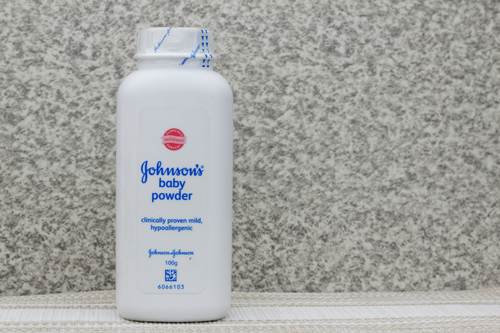
Recently, Johnson & Johnson has been ordered to pay $417 million dollars to a woman who says she developed ovarian cancer after using Johnson & Johnson’s baby powder, bringing renewed attention to the safety of.talc, the main substance in baby powder. The American Cancer Society asserts that talc contains asbestos, a substance known to cause cancer in and around the lungs, but despite a number of clinical studies on animals and humans, results are inconclusive regarding whether or not talcum powder increases cancer risk.
In light of recent events and the ongoing conversation regarding the safety of talc products, we asked Sermo doctors if they think products that contain talc are safe to use.
The results of the poll were close – within the margin of error. According to results, about half of doctors think talc is not safe to use:
“I do not use it on my patients. I always believed that inhaled poses risks to health.” – Pediatrics
“If all talc formulation contains asbestos that proves to lead to cancer, I understand that it really is NOT SAFE, so it should be withdrawn from the market as it did with building products.” – Urology
“Has been avoided by most GYNs for many years. I look for the powder that is cornstarch. Works just as well.” – Obstetrics & Gynocology
“I personally do not recommend the use of talc, it has long been said to increase the risk of cancer.” – Pediatrics
“I avoid any product that is suspected of having a relationship with cancer, because with the rise of new products both cosmetic and electronic we have seen the increase in the incidence of different types of cancer over the decades, combining today in almost an epidemic world.” – General Practice
“Although it is not verified that the talc produces cancer, I consider that it is better not to run the risk, it is always good to avoid.” – Trauma Surgery
The other half of doctors, however, firmly contend that baby powder is completely safe to use and argue that the recent lawsuit has confused many into thinking that legal liability is the same thing as a clinical danger:
“Talc has been around for centuries. The association borders on superstition.” – Pathology
“If the talc were harmful, all those who operate daily would have hand cancer, and in my experience that has not happened, we now have the gloves free of talc, however how many years of daily use do not have millions of surgeons in the world?” – Obstetrics & Gynecology
“Talc may not contain asbestos, but it provides an enormous dose of lawyerbait with every use. Manufacturers should beware…” – Anesthesiology
“I sold my j and j stock not because I think it causes cancer but because juries think it causes cancer. It may be a buying opportunity.” – Family Medicine
“In court it is too often not what is the truth, but who has the lawyer with the most persuasive personality.” – Cardiology
“Unfortunately there are too many lawyers looking to make a killing and are willing to take advantage of a possibly concerning situation, turn it into a crime and go after the deepest pockets they can find. This is just another example of the greed factor that continues to afflict American medicine.” – General Surgery
The poll was fielded in September of 2017. 1216 physicians responded to the poll. The margin of error for the global poll was ±3%. More information about Sermo polling methodology can be found here.
Are you a physician? Do you want to connect with other doctors about current issues? Login to Sermo to talk with other real doctors about your thoughts and the medical field.








